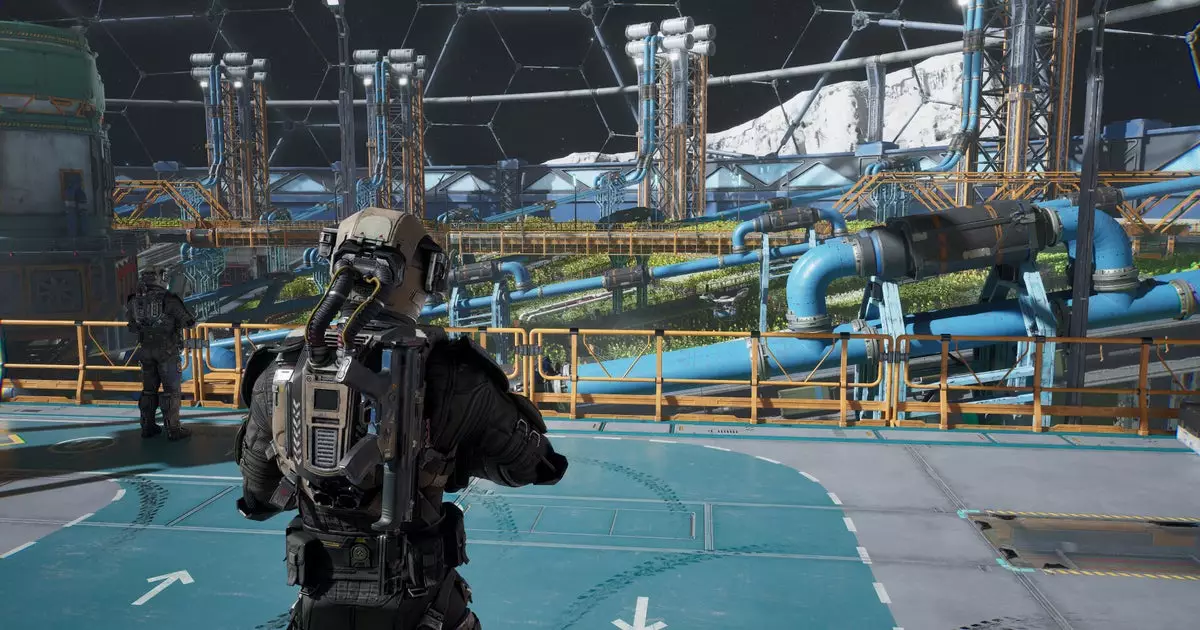The allure of creating a video game based on a beloved franchise is a double-edged sword. On one hand, developers stand on the shoulders of giants—established narratives and world-building can create an engaging backdrop for players. On the other, there is the inherent risk of being overshadowed by the source material, a pitfall that many games have encountered across genres. Owlcat Games, the developers behind the upcoming title *The Expanse: Osiris Reborn,* tread this fine line with a lot of promise anchored by their notable track record in the RPG space.
Set in the intricate universe of *The Expanse*, a series renowned for its realistic depiction of space and complex political narratives, *Osiris Reborn* aims to carve out a unique experience that stands alongside both the book and television adaptations. Players will navigate through events that run parallel to the first two seasons of the show, and although the familiar figures of James Holden and the Rocinante crew will loom large in the background, the game aspires to give gamers new characters and narratives to explore. This approach allows for fresh storytelling while maintaining the essence of the beloved franchise. However, with expectations high, the question remains: can it truly do justice to the rich lore of *The Expanse*?
Unfolding a Brand New Narrative
Creative director Alexander Mishulin articulated a vision for storytelling in *Osiris Reborn* that resonates deeply with fans of expansive narratives. By promising players the opportunity to witness the consequences of major events like the tragic fate of the *Canterbury*, the game positions its narrative as not just an independent echo of established lore but as an integral part of the universe. This commitment to weaving personal player storylines into larger events gives context and depth—something that many spin-off titles have struggled to achieve.
The proactive involvement of players in shaping their own destinies within the grander scheme of *The Expanse* universe is commendable. Mishulin’s insights into how player choices resonate with the broader storyline demonstrate a thoughtful approach to game design that prioritizes player agency, making for an experience that could lead to meaningful emotional engagement.
Gameplay Mechanics That Resonate
One of the most striking details about *Osiris Reborn* is its approach to character development. Unlike many traditional RPGs that pigeonhole players into rigid class structures, this game promises a more open-ended system where choices and character builds reflect personal play styles. The lack of predefined classes allows for creativity and flexibility—a breath of fresh air that many players have longed for. This evolution not only empowers players to experiment with their roles but also enhances replayability, giving them the freedom to craft unique experiences across multiple playthroughs.
The mechanics of the gameplay are intriguing, especially the emphasis on how weaponry influences strategy. Unlike previous Owlcat titles, where character stats might define play style, in *Osiris Reborn*, equipment choices significantly govern tactical decisions. This lends a refreshing dynamic to combat encounters that may help distinguish it from the plethora of RPGs vying for attention in the market.
Adding another layer of strategy, players will manage their crew and their missions. Party members won’t passively wait for your return but will venture on their own paths, creating a living, breathing world that reacts to player actions. This camaraderie among a diverse crew adds a rich narrative tapestry that can deepen the player’s connection to the game.
The Hard Sci-Fi Ethos
What truly sets *The Expanse: Osiris Reborn* apart is its steadfast adherence to the ‘hard sci-fi’ aesthetic that has become synonymous with the franchise. Mishulin has expressed a dedication to realism, especially when situating gameplay elements within the physical laws of space. The inclusion of gadgets like visors for tactical reconnaissance further complements this ethos, offering players tools to interact thoughtfully in an environment that behaves like real space.
However, this commitment to realism within gameplay has its drawbacks. Notably, the absence of ship-to-ship combat may cause disappointment for fans looking to engage more directly with the space-faring aspects of *The Expanse*. This limitation raises questions about the depth of space exploration and combat, as players might have anticipated a more hands-on approach to their very own customizable ship.
The balance between embracing the narrative and realism while crafting engaging gameplay remains a delicate one. Ultimately, *The Expanse: Osiris Reborn* stands as a bold endeavor, one that offers gamers not only a new chapter in the beloved universe but a fresh perspective on how stories can unfold in interactive media. As anticipation builds for its release, it remains to be seen whether Owlcat will meet the sky-high expectations set forth by fans and gamers alike.

